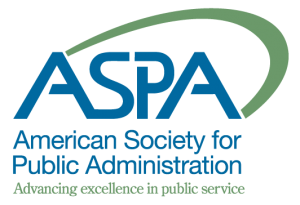PAR Preview

PAR Preview ▪ Issue 90 ▪ October 2017
PAR Preview is a monthly newsletter that calls attention to forthcoming articles in PAR.
PAR Preview provides brief summaries of content now available digitally in Early View,
Wiley’s online publication system.
Follow PAR on Twitter (@PAReview) and on Facebook
Stay updated on PAR-related conferences and events here.
PAR Virtual Issue
James L. Perry, Editor-in-Chief
Legacy and Stewardship
James L. Perry (Indiana University, Bloomington) writes in his final editorial as PAR’s nineteenth Editor in Chief, “Legacy and Stewardship,” about the journal’s long-standing legacy of leadership for the field of public administration. This virtual issue highlights ten editorials from his term as Editor in Chief that represent how PAR’s more than seven-decade legacy was manifest from 2012 through 2017. Link to PAR Virtual Issue
Research Article
How Leadership and Public Service Motivation Enhance Innovative Behavior
Prior research has linked the innovative behavior of public sector employees to desirable outcomes such as improved efficiency and higher public service quality. However, questions regarding the drivers of innovative behavior among employees have received limited attention. Qing Miao (Zhejiang University, China), Alexander Newman (Deakin University, Australia) Gary Schwarz (SOAS University of London, United Kingdom), and Brian Cooper (Monash University, Australia) employ psychological empowerment theory to examine the underlying processes by which entrepreneurial leadership and public service motivation (PSM) shape innovative behavior among civil servants. Based on three-wave data from 281 Chinese civil servants and their 59 department heads, entrepreneurial leadership is found to positively influence subordinates’ innovative behavior by enhancing two dimensions of psychological empowerment: meaning and impact. Additionally, PSM was found to influence subordinates’ innovative behavior by enhancing the dimensions of meaning and competence. These findings suggest that to facilitate innovative behavior among employees, public organizations should consider introducing training that encourages leaders to serve as entrepreneurial role models and recruit employees with high levels of PSM. Link to PAR Early View
Research Article
Can Performance Management Best Practices Help Reduce Crime?
As performance management systems gain popularity in police agencies, they are increasingly being criticized for their ineffectiveness at reducing crime and for encouraging abuse of authority. Scholars and practitioners, however, argue that these systems can be effective if they are implemented properly with the use of best practices. Obed Pasha (Cleveland State University) contributes to this debate by evaluating the impact of performance management systems and associated best practices on improving police performance. An analysis of primary survey data of 308 U.S. police agencies shows that performance management systems are effective tools in helping reduce crime across almost all crime categories. However, the best practices of performance reporting to citizens and providing discretion to officers have no significant impact on crime reduction, while consulting officers in the target-setting process has a negative impact on police performance. Link to PAR Early View
Research Article
Decreasing Improper Payments in a Complex Federal Program
Since the early 2000s, the U.S. federal government has placed increasing focus on combating improper payments. Implementing policies to control improper payments is no easy task. Federal programs are often large, complex, riddled with moral hazard concerns, and jointly implemented. In 2011, the U.S. Department of Labor adopted a national strategy to combat improper payments in the Unemployment Insurance program. Robert A. Greer and Justin B. Bullock (Texas A&M University) examine the effect that the Department of Labor’s strategic initiative had on lowering states’ improper payments. Findings show that two of its tools—mandatory cross matching of employment records between the National Directory of New Hires and State Directories of New Hires and a communication strategy known as messaging—played a statistically significant role in halting the rise of improperly paid unemployment insurance claims. These results suggest that information technology tools and increased communication among stakeholders can be effective in lowering improper payments and improving government performance. Link to PAR Early View
Book Review
Danny L. Balfour, Editor
Restoring Faith in Government: A Sisyphean Task?
Mary R. Hamilton (University of Nebraska Omaha) reviews Valuing Bureaucracy: The Case for Professional Government (2017) by Paul R. Verkuil. In his latest book, Verkuil makes a valiant case for rebuilding professionalism in government. Drawing on his recent experience as chairman of the Administrative Conference of the United States (ACUS) during the Obama administration, Verkuil argues that rebuilding professionalism in government is essential to accomplishing all of our major goals. For example, he asserts that we cannot rebuild our physical infrastructure without fixing our human infrastructure. Link to PAR Early View
Book Review
Danny L. Balfour, Editor
A Plea from a Former Careerist to Presidential Appointees
Susannah Bruns Ali (Florida International University) reviews The Presidential Appointee’s Handbook, Second Edition (2017) by G. Edward DeSeve. How do you write a handbook for new political appointees of an administration that has the goal of uprooting the status quo? According to Bruns Ali, DeSeve gives a balanced overview that grounds new appointees in some of the challenges of their new positions and gives a constructive guide to help navigate the tangled complexity of getting work done in a political environment. Where the book could contribute more is by speaking to the Hobbesian/Machiavellian nature of an appointee’s job when he/she is tasked with creating drastic changes that are often in opposition to the mission of the organization that he/she is to lead. Link to PAR Early View

Public Administration Review is published by Wiley on behalf of the American Society for Public Administration.
Editor-in-Chief: James L. Perry ▪ Editor: Richard Feiock
For any comments or inquiries regarding PAR, please contact us at par@fsu.edu.
For Table of Contents (TOC) alerts, please follow the instructions below:
- Create an account / sign in to Wiley Online Library.
- Click on “Get New Content Alerts” in the JOURNAL TOOLS menu on the PAR page.
- An e-TOC shows up in your email inbox for each issue!